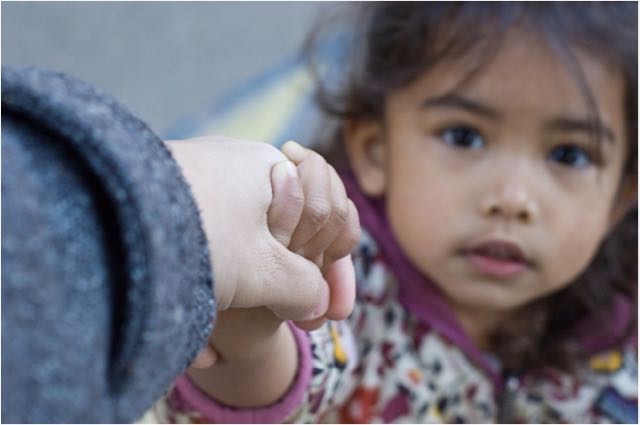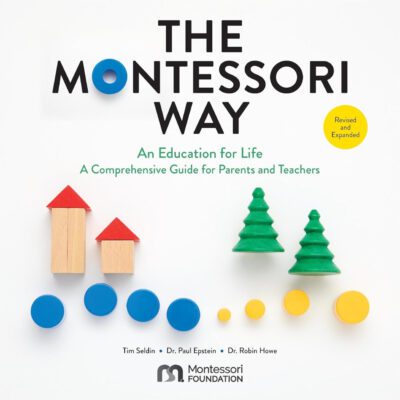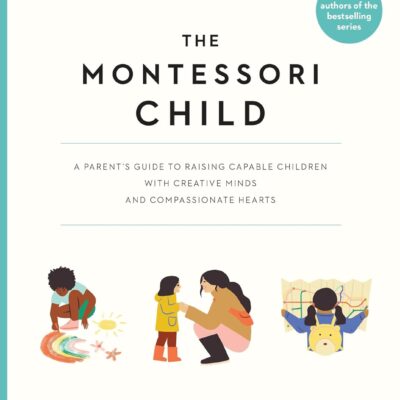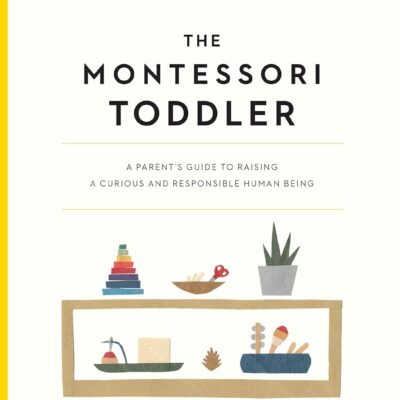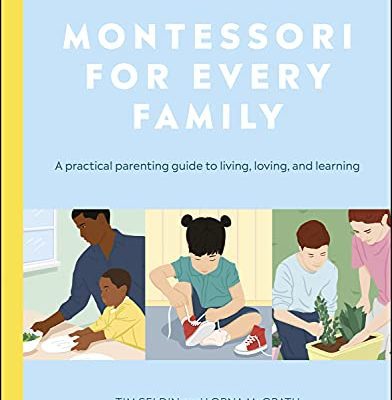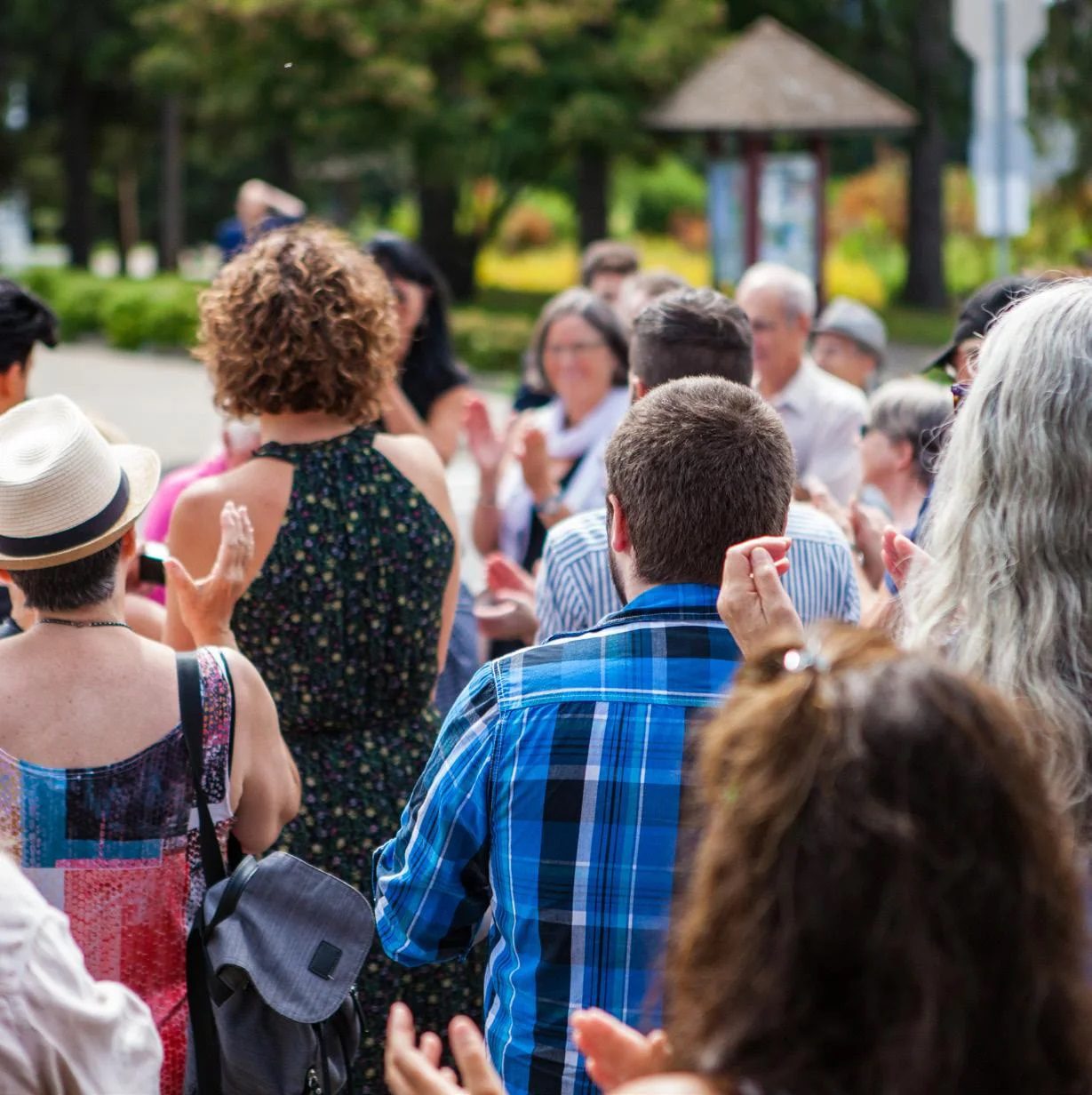
Life has changed for many families over the years, and today it is more important than ever for schools and families to work together to create a nurturing community that supports parents, teachers, and children. Schools can be much more than where children learn basic skills; they can become communities where people feel safe, connected, and welcomed.
In most Montessori schools, this is already the case. Their byline could be similar to this line from Yeats: “There are no strangers here. Only friends you have yet to meet.”
Montessori parents often describe their children’s schools as the center of their friendship circles.
Here are some of the many ways that great Montessori schools create community and partnership with their families, faculty, and staff.
Perhaps your child’s school already does many of them. If not, perhaps now is the time to gently and positively see if you can interest the school’s leadership, teachers, and other families into taking a first step.

- People smile at everyone they meet and take pains to make them feel welcome. They carefully introduce new families and staff members into the school community.
- Teachers and staff greet people as they arrive to drop off and pick up their children.
- The school encourages the entire community to get to know one another.
- School leaders and teachers make it easy for parents and students to meet with them.
- Coffee and Conversation: At many schools, families are invited to gather once a month, often right after drop off, in a central area to drink coffee while engaging in lively discussions. This not only strengthens bonds among parents but also offers a relaxed setting for informal interactions with school leaders.
- Parents are encouraged to observe classrooms in action. This can be particularly enlightening for those new to Montessori, offering a window into their children’s daily learning environment. Of course, this requires careful scheduling between parents and classroom teachers.
- They respond to any family crisis with warmth and caring. They call, visit, send cards, and lend a helping hand.
- They encourage parents to volunteer in the classrooms and on committees. They do everything possible to ensure that they have a positive experience.
- They keep volunteer assignments short to allow them to get a sense of completion.
- They avoid long boring meetings, politics, or wrangling.
- The school helps parents feel confident that their children are getting a first-class education.
- The school always has name tags at parent gatherings.
- They hold at least two “Student Demonstration” events a year: a daytime or evening where children get to bring one or two people to school as their guests. The children teach their parents or friends how to do what they do in class.
- Some schools organize a once-a-month social for all their Infant-Toddler families on Saturday afternoons. They provide an appropriate activity, such as art, music, or a sensory experience that can easily be recreated at home. Some schools hold a variation on this with “Parent-and-Me” session held at school.
- They create a tuition-funded financial-aid program with a goal that no child will have to leave school because of financial problems. They ensure that their financial-aid process is warm, friendly, and strictly confidential.
- Many Montessori schools coordinate a Parent Ambassadors program. Parent Ambassadors are a group of dedicated parents who play a crucial role in facilitating communication between the school and families. They use email and telephone/messaging chains, enabling them to efficiently remind families of upcoming events, answer queries, and recruit volunteers for various school activities. They also welcome new families into the school community.
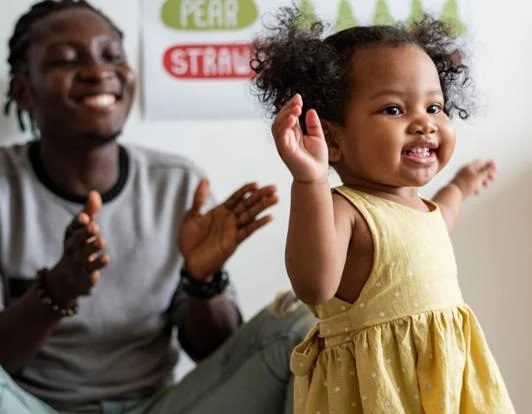
-
Many Montessori schools hold monthly Community Meetings where parents, teachers, administrators, and interested students are invited to meet to explore issues of common interest in an open forum. Community Meetings often offer feedback and advice to the school’s leadership and Board. Parents and teachers who participate tend to gain a much deeper understanding of the school’s mission, strengths, and the issues that challenge it. Many appreciate the opportunity to have a voice in the life of the school.
-
At a Community Meeting or other event, someone will propose a toast to the school. People share memories and stories.
-
Many schools open and close the school year with special ceremonies.
-
They hold special social events for the community. A few examples might include a picnic, an old-fashioned square dance, a fall festival, a winter fest, a spring picnic, a theater party, a potluck dinner, or a family camp-out on the school grounds.
-
Childcare at evening parent meetings.
-
Montessori schools work hard to nurture every child’s artistic and musical potential. Every student aged five and above receives instrumental instruction, participates in ensemble performances, and studies art. These programs have led to remarkable displays of talent. The school stages musical theater and ensemble performances during the year.
-
Ideally, schools have a room on campus where parents can sit and read about Montessori or talk with other parents.
-
They keep a pot of coffee and/or tea going for parents who drop in.
-
The school phone is answered promptly with warmth.
-
There is a suggestion box for parents, teachers, and students.
-
They frequently ask families, teachers, and staff what they think.
-
They hold informal discussions to brainstorm and explore new ideas.
-
They defend your community against hostile or negative parents, children, and staff.
-
They take the time to explain things fully.
-
They publish an Annual Report on the state of the school.
-
They hold school-wide talent shows or art exhibits where students of all ages can showcase their talents or artwork.
A Montessori byline could be similar to this line from Yeats:
There are no stranger here. Only friends you have yet to meet.
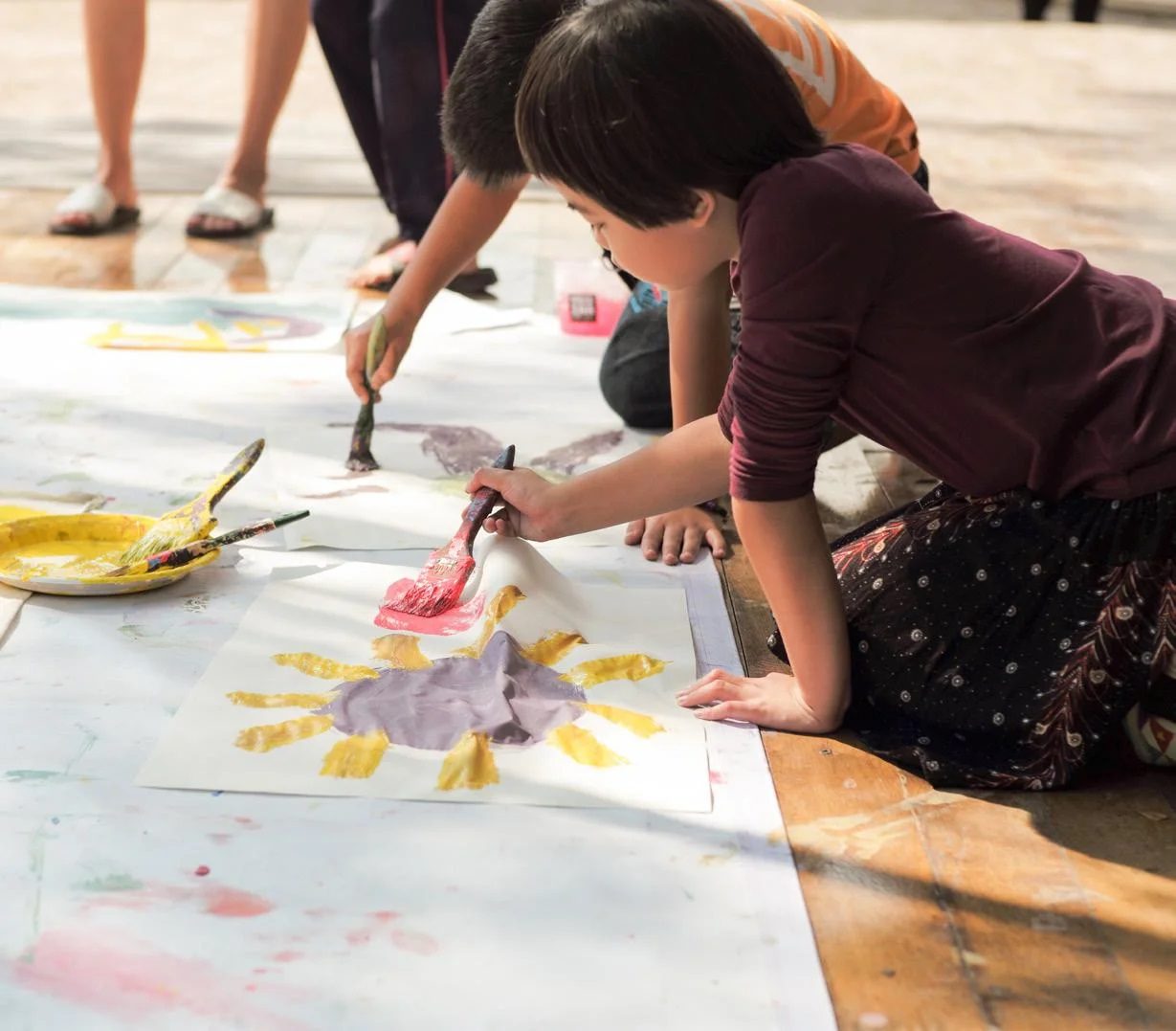
-
Older students mentor younger ones in various areas, such as academics, arts, or sports.
-
They make sure that no one ever feels threatened or blind-sided at a parent/teacher conference.
-
Many schools have student-led conferences during which students guide their parents through their learning journey. This can be especially empowering for older students, giving them a chance to showcase their progress and achievements.
-
They gather the children’s work, stories, and art into portfolios to give to their families.
-
They hold Parent Forums: open discussions in which parents explore an issue of broad interest among themselves.
-
They create an atmosphere of safety, cleanliness, and timeless beauty on their campus.
-
They celebrate cultural diversity within the school with festivals encouraging families to share their heritage and learn about others while fostering a rich, inclusive community.
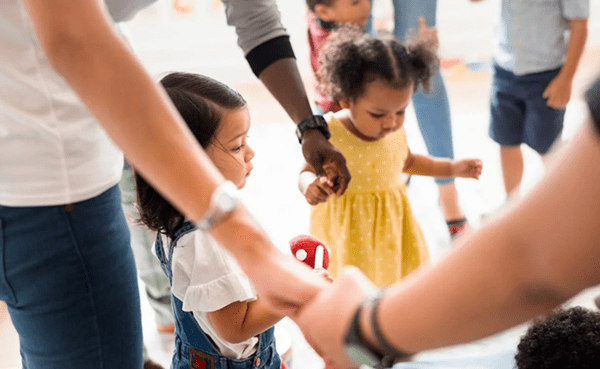
-
They organize sports events or fun runs where families participate in activities or challenges.
-
To add a fun twist to community engagements, some Montessori schools have introduced innovative events such as the “Are-You-Smarter-Than-a-Montessori-Kid?” contest. This light-hearted game challenges parents to answer questions that children learn in their Montessori classes, such as recognizing European flags or solving complex puzzles. These events not only provide entertainment but also offer parents a glimpse into the depth and breadth of their children’s knowledge.
-
They make a commitment as a school community to an ongoing program of self-study and school improvement in which parents, teachers, older students, and staff can get involved.
-
They take the time as a community to develop and periodically review a “Blueprint of the School’s Educational Philosophy and Core Values.”
-
Teachers call parents regularly just to share good news or to touch base.
-
They make sure that new volunteers are carefully taught how to do the tasks that they’ve undertaken.
-
They publish an attractive school newsletter on a regular basis that contains articles that parents want to read and pictures of children doing interesting things.
-
They give each other lots of acknowledgement and a sense of pride.
-
They send out press releases of any and all newsworthy information to the media.
-
They create a special acknowledgment pin to recognize parents and teachers who have made an extraordinary contribution of service to the school.
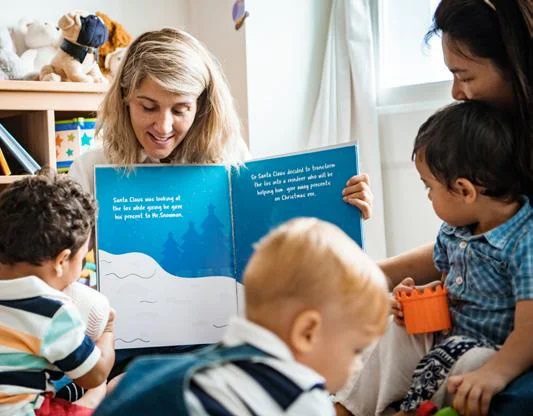
-
They design a colorful window decal with the name and logo of the school and give them to parents and teachers to put in the car’s rear windows.
-
They create a terrific school t-shirt and include at least one in the price of tuition and “give” it to every child.
-
They develop a Montessori Speaker Series, inviting experts in Montessori education, child psychology, and related fields to speak to parents and local families.
-
They host a panel of older students, alumni, and parents who share the positive impact Montessori education has had on their lives. This can be particularly inspiring for new families.
-
They facilitate support groups for parents to discuss common challenges and share advice, particularly helpful for those adjusting to the Montessori system.
-
They involve parents and families in community service projects organized by the school, reflecting the Montessori values of social responsibility and community engagement.
-
They post a page on the school website to acknowledge the teachers, families, or special volunteers for their service to the school.
-
They organize book clubs for parents, focusing on literature related to Montessori education and child development. Discussions can be facilitated by teachers or knowledgeable parents, fostering a deeper understanding of the Montessori philosophy.
-
They encourage student-run cafés. Some provide a practical learning experience for students and a gathering spot for the community where parents, teachers, and students can interact informally, enhancing community ties.
-
The share meals at various events, underscoring the importance of coming together and bonding over food. This tradition is essential for building strong, lasting relationships within the school community.
Montessori schools tend to be vibrant communities. Their unique traditions, commitment to arts and culture, and dedication to creating a warm and inclusive environment exemplify the best of Montessori education.

Tim Seldin is President of the Montessori Foundation and Chair of the International Montessori Council. His more than 40 years of experience in Montessori education includes 22 years as Headmaster of the Barrie School in Silver Spring, Maryland, his alma mater from toddler through high school graduation. Tim was Co-Founder and Director of the Institute for Advanced Montessori Studies and the Center for Guided Montessori Studies. He earned a B.A. in History and Philosophy from Georgetown University, an M.Ed. in Educational Administration and Supervision from The American University, and his Montessori certification from the American Montessori Society. Tim Seldin is the author of several books on Montessori Education, including How to Raise An Amazing Child, and The World in the Palm of Her Hand Look for his new book, Montessori for Every Family, co-authored with Lorna McGrath.



